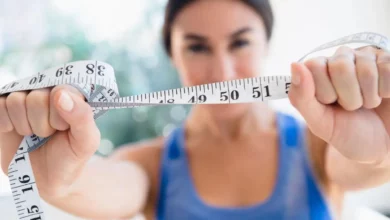The Ultimate Guide to Healthy Weight Loss
When you hear the word “diet” people usually think of restrictive rules and dos-it-or-nots. Well, you’d be right about that.
But what if you could be free to eat how you want and stay Detoxed? What if your diet was based on a simple, yet effective, way to lose weight? What if your food was healthy and balanced so you didn’t feel like you were consuming 100% unhealthy foods?
The answer is yes! You can have it all the way from low-carbohydrate to high-protein; from gluten-free to rice-based. Read on for everything you need to know about healthy eating habits, from the benefits of each type of diet to why one might not be right for another.
What Is a diet?
A diet is a combination of eating and practicing certain lifestyle habits. It’s a way of living that helps you stay healthy and strong by controlling your numerous individual health risks, from weight gain to type 2 diabetes.
You can have a healthy diet that is low in fats, sodium, sugar, carbohydrates, and proteins. But in order to lose weight, you also need to control your eating habits so you don’t end up with extra weight, or “waistline weight” as the media calls it.
A healthy diet consists of eating healthy fats (including olive oil), protein foods like proteins, fish, eggs, and vegetables, and healthy total Carbs (TCs) like whole grains, beans, and legumes.
Why Does One Stay Healthy and The Other Not?
There are a few reasons why one group will lose weight faster than the other. Weight gain: The main reason why people who follow a healthy diet will lose weight is due to the fact that they are eating fewer “empty” calories.
In other words, they are burning more calories in the process of losing weight. Stomach acidity: The farther you progress in eating a certain way, the more acidity your stomach will be. So if you eat too much empty calories, you’ll feel flatulence-like gas passing throughout your body.
Sleeping proficiently: A healthy eating schedule is one that you can maintain through the night. You need to be able to sleep at least six hours without feeling jittery or impaired.
Carbohydrates
When you consume foods with carbohydrates (often sweets), the chemicals in them get broken down by your body and sent to your bloodstream as “sugar.”
As your body tries to process the sugar it’s storing in your liver and other organs, it makes nervous cells. These nerve cells then send messages to your brain that dictate what type of food you can consume.
Strict DIET
This advice comes from a strict diet that includes both moderate intake and exclusion of certain foods. The strict diet is based on the notion that you should consume no more than an average of 9-12 calories (6-9 fiber, 4-5 sugar) per pound of body weight daily.
High protein diet
A high-protein diet (and especially a high-fat diet) is the ultimate diet for those who want to lose weight because of the negative impact it has on health. A high-fat diet—or even a “balanced diet” as many people use it—is too high on the “sugar” and “fat” front.
A high-protein diet is the opposite, which means you get the benefits of both sugar and fat without having to sacrifice the taste or texture of your favorite foods.
Gluten-Free Diet
If you are diabetic, you may wish to look into using a gluten-free diet. Gluten-free food is food that does not contain the Bible portion of corn and soybeans (the “all-natural” parts of the diet) and consists of mostly whole grains, vegetables, and fruits.
Conclusion
Eating healthy has become more difficult as people are aging. As a result, individuals are increasingly faced with the challenge of weight loss.
Over the next decade, the rate of obesity is set to increase dramatically due to the increased number of people in developed countries who are choosing to be healthy and active.
The overall goal of this article is to provide some insight into healthy eating and how it can be practiced by individuals who want to lose weight.


